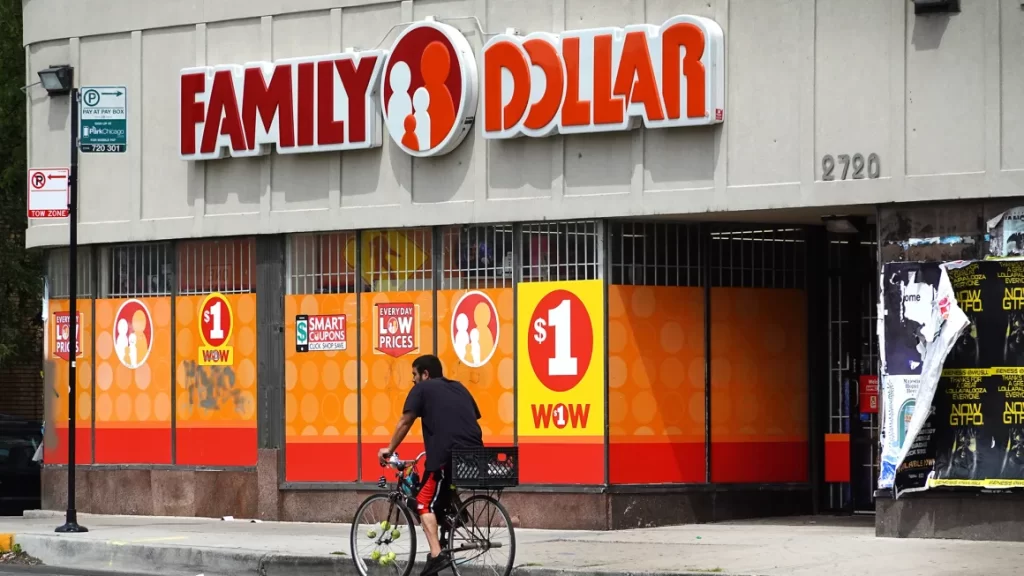
Family Dollar, the struggling discount chain that caters to low-income customers predominantly in cities, said Wednesday it will close nearly 1,000 stores.
Years of mismanagement and poor conditions in stores have hurt Family Dollar’s brand. Family Dollar, which is owned by Dollar Tree, was recently fined more than $40 million for a rat infestation at a warehouse that forced hundreds of stores to temporarily close.
Decades-high inflation has hit shoppers hard, and a general consumer pullback has impacted Family Dollar customers and the chain’s profits, exacerbating its battle with discount competitors such as Dollar General, Walmart and others.
In addition, the reduction in benefits for the Supplemental Nutrition Assistance Program, or SNAP, has left struggling families with as much as $250 less per month. Discount stores and consumer goods companies say they have felt the impact of that loss.
“Persistent inflation and reduced government benefits continue to pressure the lower-income consumers that comprise a sizable portion of Family Dollar’s” customer base, CEO Rick Dreiling said Wednesday on a call with analysts.
Family Dollar will close 600 locations this year and 370 stores over the next several years as store leases expire. Family Dollar has around 8,000 US stores. Dollar Tree also said it will close 30 stores as leases expire.
The closures will improve the company’s profitability. But they are likely to leave a void for Americans with already limited shopping choices. Family Dollar stores are often in areas with few supermarkets, big box stores and other retail options.
Shares of Dollar Tree sank more than 13% to their lowest level this year in early trading Wednesday.
Understaffed and hazardous stores
Discount retail has been one of the bright spots in the industry, dating back to the Great Recession, when the economic downturn and high unemployment meant Americans hunkered down, forcing retailers to slash prices to survive.
Years of bargain hunting has conditioned shoppers to look for discounts instead of paying full price, a mentality that remains to this day.
So, while thousands of department stores, speciality stores in malls and other retailers have closed, discount companies ranging from Walmart to Dollar General to TJ Maxx have grown. These companies have focused on appealing to the shrinking middle class and lower-wage shoppers searching for low prices. As many shoppers have been squeezed by the highest level of inflation in decades, discount chains have improved their position.
But Family Dollar has missed out.
Dollar Tree, which focuses more on middle-income shoppers in suburbs, bought Family Dollar in 2015 for $8.5 billion.
The combined company hoped that by joining forces, it could grow its customer base, reduce costs and fend off bigger retailers like Dollar General, which is mainly in rural areas.
But Dollar Tree has struggled to integrate Family Dollar and has closed hundreds of stores in recent years.
Family Dollar stores were in worse condition than Dollar Tree expected when it acquired the business, analysts say. Even though Family Dollar has renovated thousands of stores in recent years, many stores are still poorly maintained. Stores are often understaffed and boxes block aisles.
Family Dollar, Dollar Tree, Dollar General and other discount stores have had longstanding theft issues, operating stores with just a handful of employees who have at times been victims of violent robberies and other crimes.
Dollar Tree employees have complained about unsafe working conditions, and OSHA last year criticized the company for a “continued disregard for human safety” that “suggests the company thinks profits matter more than people.”
Family Dollar was hit with a record fine this year for violating product safety standards after selling items that were stocked in a rat-infested warehouse in West Memphis filled with live, dead and decaying rodents.
The $41.6 million fine was “the largest-ever monetary criminal penalty in a food safety case,” the Justice Department said.
Last year, Dollar Tree announced it would review its entire portfolio of Family Dollar stores to identify underperforming locations.
Dollar General booming
As Family Dollar struggled, rival Dollar General boomed.
Dollar General has opened about 1,000 stores a year, making it the fastest-growing retailer in the United States. The company has around 18,000 stores.
The companies are battling for many of the same low-income shoppers. Despite the name, these stores sell mostly food and everyday items for between $1 and $10.
But Family Dollar has lost ground to Dollar General, in particular due to prices: Family Dollar’s prices can be 10% to 15% higher than Dollar General’s and other discount competitors. Dollar General, which is more than double the size of Family Dollar, can offer lower prices because of its scale.
Shoppers have shifted to Dollar General, Walmart, Target and other low-priced chains to stretch their budgets.





























